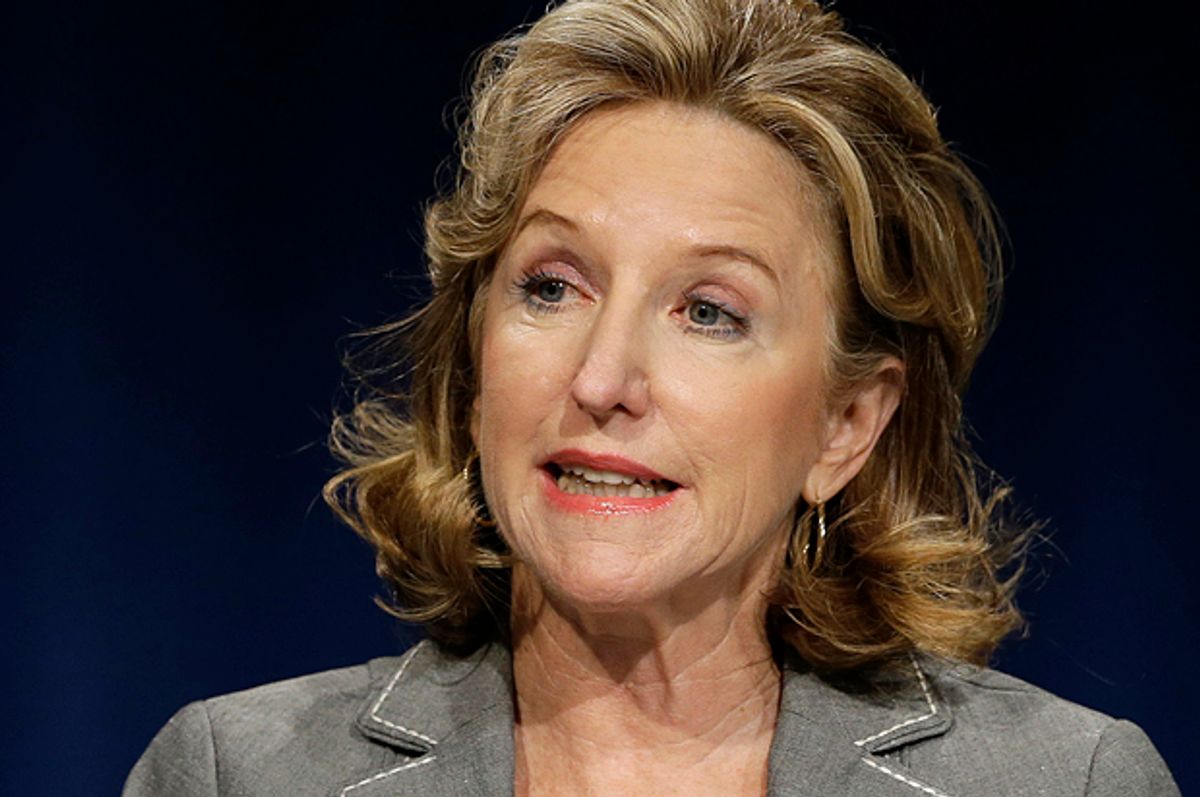With Republicans now favored to pick up Democratic-held Senate seats in a handful of red states and polls showing increasingly competitive contests in blue states Iowa and Colorado, Republicans have multiple paths to winning back the Senate majority this year. But with only five weeks until Election Day, Democrats have one crucial advantage heading into the home stretch: they’re investing far more in the ground game.
Writing for the New York Times’ Upshot vertical, Derek Willis crunches Federal Election Commission numbers and finds that Democrats have outspent Republicans on in-state staff and voter turnout operations in the key Senate battlegrounds of Alaska, Colorado, Iowa, and North Carolina. In those four states and Michigan – where Democrat Gary Peters is the favorite over Republican Terri Lynn Land – Democratic campaigns and allied groups have spent $4.8 million on field staff, voter registration efforts, raising awareness of absentee and early voting options, and ensuring that voters show up on Election Day. GOP groups, meanwhile, have spent only $369,000 on the ground game in those states.
It’s a truism that elections all come down to turnout. But the strength of candidates’ ground games will be particularly crucial in closely fought contests like North Carolina, where Sen. Kay Hagan hopes to mobilize African-American voters to stave off Thom Tillis, and Colorado, where Sen. Mark Udall needs a robust Latino turnout to fend off a spirited challenge from Republican congressman Cory Gardner.
In other midterm news:
- Are incumbent governors facing a November “wipeout”? The Washington Post’s Dan Balz examined the unusually large number of vulnerable incumbents in his column on Sunday, and Politico is on the case today. Ranking the top 10 most vulnerable governors in the country, Politico finds Pennsylvania Gov. Tom Corbett the most vulnerable governor in the country – an easy call, given that he trails Democratic challenger Tom Wolf by 16 points, according to RealClearPolitics’ polling average. Even the tenth-ranked race on the list is exceedingly close; Republican Gov. Nathan Deal of Georgia leads Democrat Jason Carter by just 0.4 points, according to RCP. Most of the vulnerable incumbents on Politico’s list are Republicans , but Democrats Dannel Malloy of Connecticut, Pat Quinn of Illinois, and John Hickenlooper of Colorado also face tough races.
- Could Martha Coakley lose again in Massachusetts? The state attorney general – who lost to Scott Brown in the special election for the late Sen. Edward Kennedy’s seat in 2010 – was once seen as a shoo-in in this year’s gubernatorial contest, in which she faces businessman and 2010 GOP nominee Charlie Baker. But yet another race in which Coakley was once solidly ahead has become a tossup in recent weeks, FiveThirtyEight’s Harry Enten says. “In the seven polls taken over the past two weeks,” Enten observes, “Coakley’s average advantage has been just 1.4 percentage points. She led in three polls, trailed in three and was tied in another.” While it may be tempting to ascribe the unexpected closeness of the race to Coakley’s poor skills as a candidate, Enten points out that Massachusetts’ deep-blue image belies its willingness to elect Republican governors; three of the state’ past four elected governors have been Republicans. So while Coakley is still “even money” to win, it wouldn’t be unusual to see a Democrat lose the governor’s race in Massachusetts while a Democrat wins the gubernatorial contest in Kansas this year. After all, the same scenario panned out in 2002, when Mitt Romney won in Massachusetts and Kansas voters elected Kathleen Sebelius to her first term.
- Have Republicans given up on Michigan? Political Wire’s Taegan Goddard flags an NPR report that GOP Senate candidate Terri Lynn Land hasn’t appeared in public in a week. Land, who once ran even or even ahead of Democrat Gary Peters in some polls, has fallen decisively behind Peters of late. A new poll out this morning has Peters up 10 points in the race. An August piece by the National Journal detailed mounting Republican discontent with Land, whom many in the party see as a less than deft candidate.
- The battle for control of state legislatures hasn’t received much attention in the national media, but Politico notes that the parties are fiercely contesting several chambers this year. Right now, the GOP has effective control of 59 of 98 state legislative bodies. That includes the New York and Washington State Senates, where breakaway Democrats have given effective control to the GOP, despite numerical Democratic majorities. Democrats hope to gain decisive control of those chambers; other battlegrounds are in traditional swing states like Iowa, New Hampshire, and Colorado. Meanwhile, despite the states drifting Republican in recent elections, Kentucky’s House and West Virginia’s House and Senate are Democratic-controlled; Republicans are hoping to at least begin reversing that this year.

Shares